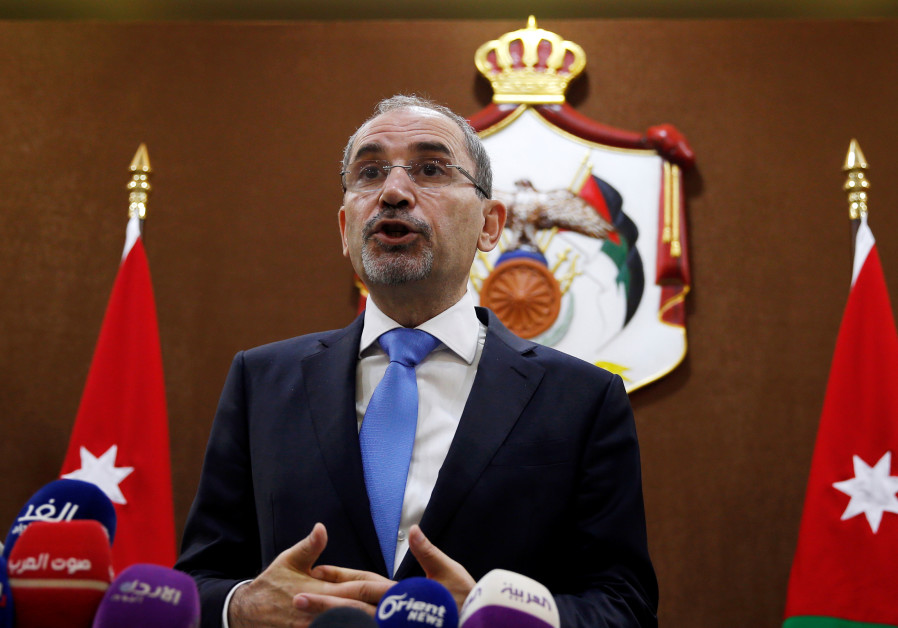Jordan and Israel may hold talks on Amman’s cancellation of treaty annexes

Jordanian Foreign Minister Ayman Safadi addresses the press in Amman, Jordan, July 2, 2018.. (photo credit: MUHAMMAD HAMED / REUTERS)
Jordan and Israel are likely to hold talks over Amman’s decision to rescind a 25-year land deal that allowed Israel to use two of its border areas.
Israel has formally requested such discussions on border territories, Petra News Agency reported on Sunday.
Under terms set out in the 1994 Treaty of Peace between Israel and Jordan, Israel has used the area of Naharayim (Baqura) near the Lake Kinneret (Sea of Galilee) and part of Tzofar (al Ghamar) in the Arava.
But last month, Jordan said it planned to use a clause in the agreement that would allow it to cancel the deal.
Jordanian Foreign Minister Ayman Safadi told Reuters last month that the deal, which was signed in October 1994, had been conceived as a temporary arrangement from the start.
“That is why there was a time cap on it,” Safadi told Reuters. “We acted within the provisions of the peace treaty. This is an indication of our commitment to the peace treaty. There has never been a question of our solid commitment to the treaty.”
State Minister for Media Affairs Jumana Ghunaimat said that Jordan was committed to holding consultations with Israel on the matter, but in a way that preserved the country’s national interests, according to Petra News Agency. No date was set for the talks.
On Thursday, President Reuven Rivlin is expected to receive diplomatic credentials from the incoming Jordanian Ambassador Ghassan Majali and Egyptian Ambassador Khaled Azmi.
Separately, Israeli media reported that Prime Minister Benjamin Netanyahu met Sunday evening with US envoy Jason Greenblatt, who is in Israel to talk with officials about the expected unveiling of the Trump administration’s peace plan this winter.
In advance of that unveiling, Omani Foreign Minister Yusuf bin Alawi publicly called for normalized relations with Israel. In addition, Netanyahu traveled to Oman and met with its leader, Sultan Sayyid Qaboos bin Said Al Said, even though the two countries do not have diplomatic relations.
On Sunday night, Transportation and Intelligence Minister Israel Katz left for Muscat to participate in an international transportation event called the IRU World Congress.
He will present his plan, “Tracks for Regional Peace,” which calls for the construction of a railway between Israel, Jordan, Saudi Arabia and the Gulf states.
“This is a historic visit that will strengthening relations,” Katz said.
On Sunday, Rivlin was focused on the possibility of violence, not peace, specifically the spillover of the Gaza conflict into the West Bank.
He made a rare visit to the IDF Judea and Samaria division, together with IDF Chief of Staff Lt.-Gen. Gadi Eisenkot, GOC Central Command Maj.-Gen. Nadav Padan and the commander of the Judea and Samaria division, Brig.-Gen. Eran Niv.
“This is a very sensitive and volatile period in the Palestinian theater. Events in Gaza have a direct effect on what happens in Judea and Samaria, and in addition to the security situation there is a complex civilian reality on the ground. All these could lead to a significant escalation,” Rivlin said.
Reuters contributed to this report.
Join Jerusalem Post Premium Plus now for just $5 and upgrade your experience with an ads-free website and exclusive content. Click here>>






Comments are closed.